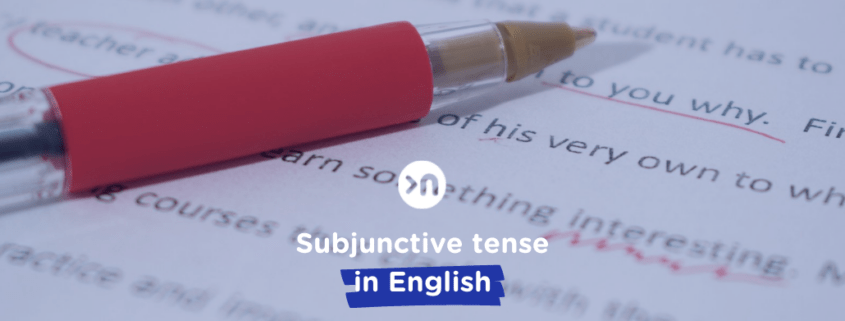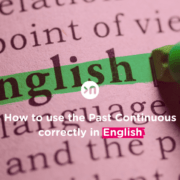How to use the subjunctive tense correctly in English
How to use the subjunctive tense correctly in English. The subjunctive is one of three moods in the English language. This mood has many uses, but most often expresses imaginary or hypothetical situations, desires and wishes, or suggestions and orders. There are two types of the subjunctive mood: the present subjunctive and the past subjunctive.

The Present Subjunctive: To give orders, demands and advice.
The present subjunctive in English is used to express something that should be done, whether that may be an order, a demand or simply a piece of advice. The formation of the present subjunctive is identical to the infinitive form of the verb. It is used in subordinate clauses that always follow the word ‘that’. For example:
It is necessary that he be more polite.
I ask that he stop behaving in such a rude manner.
I demand that he work harder.
The doctor recommended that he give up smoking.
Remember… This form of the subjunctive in English is very formal, and it is very important that you can use it, but you will often hear people use the Indicative tense instead in more informal conversations. Consider this:
It is necessary that he be more polite. (FORMAL)
It is necessary that he is more polite. (INFORMAL)
The past subjunctive
This part of the subjunctive is used much more often than the present subjunctive in spoken English. For desires and wishes, we use the past tense conjugation of the verb ‘to be’, which is ‘were’ in all subjects.. For example:
I wish the weather were warmer.
I wish you were here.
I wish you were listening to me.
He wishes you were here on time everyday.
They wish that he were working harder.
‘If clauses’
‘If clauses’ are a way of putting yourself in someone else’s shoes and saying what you would do in their situation.
This is formed by using the structure If + subject + were. It is then followed by the conditional to express what you would do. For example:
If I were you, I would go to sleep earlier.
If I were you, I wouldn’t go to work.
If we were them, we would leave immediately.
If I were her, I wouldn’t buy that car.

You can also use the past subjunctive with ‘If clauses’ to express what you would do if something were to happen to you. This is usually formed by using an adjective: If + I (subject) + were + adjective. Have a look at these:
If I were richer, I would buy a new car.
If I were older, I would move to the countryside.
If I were more sociable, I would make more friends.
Expressing regret
You can also use the past subjunctive to express regret, about something that you should have done, but didn’t. This structure requires the past perfect tense to be used, so subject + had + past participle (e.g. I had studied). This gives you the overall formation of I wish + past perfect. Take a look at these examples below:
I wish I had studied more in school.
I wish I’d moved to Spain when I was younger.
She wishes she had not been angry earlier.
They wish they’d come to work earlier.
However… remember that the subjunctive is a very formal tense in English, and it is very important that you learn to use it. Just like with the present subjunctive you will probably hear some informal English where people say ‘If I was younger’ instead of ‘If I were younger’. Don’t be afraid to use it though, it will show that you have a great grasp of the hardest parts of English! People will be impressed!
Hopefully after reading this blog post you have a much better understanding of the subjunctive in English and feel more confident using it in spoken language. Keep an eye out for more helpful grammar tips in future blog posts!










Leave a Reply
Want to join the discussion?Feel free to contribute!